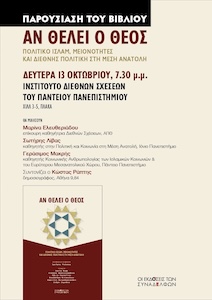 Το Κέντρο Μεσογειακών, Μεσανατολικών και Ισλαμικών Σπουδών (ΚΕΜΜΙΣ) του Τμήματος Πολιτικής Επιστήμης και Διεθνών Σχέσεων του Πανεπιστημίου Πελοποννήσου σας προσκαλεί στην παρουσίαση του βιβλίου:
Το Κέντρο Μεσογειακών, Μεσανατολικών και Ισλαμικών Σπουδών (ΚΕΜΜΙΣ) του Τμήματος Πολιτικής Επιστήμης και Διεθνών Σχέσεων του Πανεπιστημίου Πελοποννήσου σας προσκαλεί στην παρουσίαση του βιβλίου:
«Αν Θέλει ο Θεός: Πολιτικό Ισλάμ, Μειονότητες και Διεθνής Πολιτική στη Μέση Ανατολή»
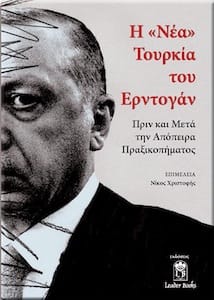 Οι εκδόσεις Leader Books και το Κέντρο Μεσογειακών, Μεσανατολικών και Ισλαμικών Σπουδών σας προσκαλουν την Παρασκευή 2 Δεκεμβρίου και ώρα 18:30 στο Ινστιτούτο Διεθνών Σχέσεων (ΙΔΙΣ), Χιλλ 3-5, Αθήνα, στην παρουσίαση του βιβλίου
Οι εκδόσεις Leader Books και το Κέντρο Μεσογειακών, Μεσανατολικών και Ισλαμικών Σπουδών σας προσκαλουν την Παρασκευή 2 Δεκεμβρίου και ώρα 18:30 στο Ινστιτούτο Διεθνών Σχέσεων (ΙΔΙΣ), Χιλλ 3-5, Αθήνα, στην παρουσίαση του βιβλίου
Η «Νέα» Τουρκία του Ερντογάν
Πριν και Μετά την Απόπειρα Πραξικοπήματος
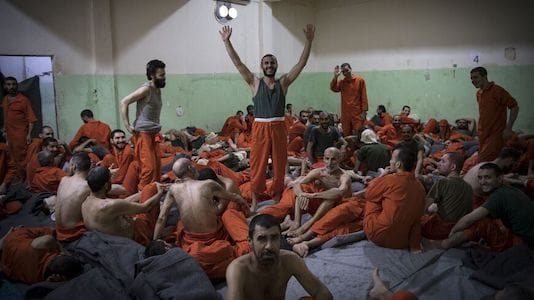 Even though, during the past year, developments in Syria have entered a stabilization trajectory, the country remains fragmented and a “playground” where different regional and national interests collide. The Assad regime has managed to maintain and extend its control in most of the Syrian territories around Damascus and in the south. However, there are still challenges from opposition forces in the northwest, the Kurdish-controlled areas in the northeast and a re-emerging ISIS threat looming both from previously ISIS-controlled enclaves as well as prisons and camps.[1] At the same time, lines are blurred in regional alliances, such as the one between Russia and Iran, as the players attempt to consolidate their power at each other’s expense. What will 2022 look like for Syria and what are the imminent threats for the country’s sovereignty?
Even though, during the past year, developments in Syria have entered a stabilization trajectory, the country remains fragmented and a “playground” where different regional and national interests collide. The Assad regime has managed to maintain and extend its control in most of the Syrian territories around Damascus and in the south. However, there are still challenges from opposition forces in the northwest, the Kurdish-controlled areas in the northeast and a re-emerging ISIS threat looming both from previously ISIS-controlled enclaves as well as prisons and camps.[1] At the same time, lines are blurred in regional alliances, such as the one between Russia and Iran, as the players attempt to consolidate their power at each other’s expense. What will 2022 look like for Syria and what are the imminent threats for the country’s sovereignty?
The edited volume aptly titled Erdoğan’s ‘New’ Turkey endeavours and succeeds in examining thoroughly the multiple dimensions and ramifications of the July 2016 failed coup attempt in Turkey. Edited by Nikos Christofis, this volume boasts eleven chapters from twelve contributors ranging from Europe to Turkey, with the many aspects related to the coordination process acting as testament to its importance and symbolism in cross-country and cross-academia collaboration. Hence, it comes as no surprise that the volume’s genesis originates from the 2017 international conference co-organized by the Netherlands Institute in Athens and the editor under the title Turkey in Transition (?): Before and After the Attempted Coup.
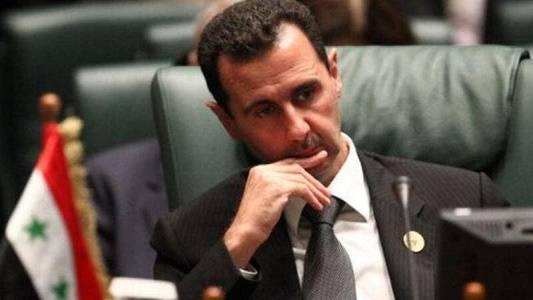 Despite the latest ceasefire in Idlib, tensions are once again rising across Syria. In the northwest, the high mobility in Idlib indicates that renewed fighting is rather a matter of timing, while in the south and east, escalating assassination campaigns in Daraa and Deir ez-Zor generate new dangerous dynamics. In central and eastern Syria, the resurgence of ISIS cells further exposes a severe security vacuum that opens way for intensive influence competition between the Kurds and the regime. Last but not least, the unprecedented economic crisis that face the country threatens to derail even the minimum stability enjoyed in Syria at the moment.
Despite the latest ceasefire in Idlib, tensions are once again rising across Syria. In the northwest, the high mobility in Idlib indicates that renewed fighting is rather a matter of timing, while in the south and east, escalating assassination campaigns in Daraa and Deir ez-Zor generate new dangerous dynamics. In central and eastern Syria, the resurgence of ISIS cells further exposes a severe security vacuum that opens way for intensive influence competition between the Kurds and the regime. Last but not least, the unprecedented economic crisis that face the country threatens to derail even the minimum stability enjoyed in Syria at the moment.
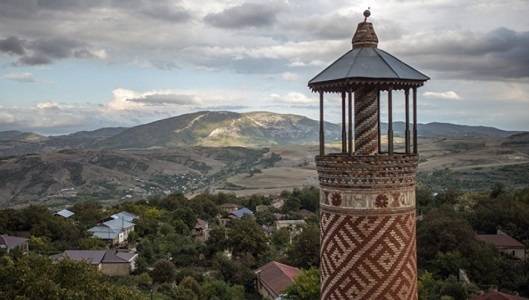
Οι αρχικές επιτυχίες του Μπακού, λόγω και της μορφολογίας του εδάφους, συνάντησαν την αντίσταση των αρμένικων δυνάμεων. Η διεθνής παρέμβαση φαίνεται να πέτυχε την πρώτη εκεχειρία μεταξύ του Αζερμπαϊτζάν και της Αρμενίας που όμως έχει ήδη παραβιαστεί. Η διαμάχη για την περιοχή χρονολογείται από τον καιρό της διάλυσης της Σοβιετικής Ένωσης και οι ένοπλες συγκρούσεις επανέρχονται περιοδικά. Γιατί όμως εκτραχύνθηκε τώρα η κατάσταση μεταξύ Αζερμπαϊτζάν και Αρμενίας;
 The decision of the Turkish Constitutional Court to revoke the almost 85-year-old museum status of Hagia Sophia and allow its conversion to a mosque did not come as a bolt out of the blue. Instead, it is the by-product of a decades – old battle concerning the republic’s oppressed Islamic soul and the orientations of her foreign policy vis-à-vis the Arab and the Muslim world.
The decision of the Turkish Constitutional Court to revoke the almost 85-year-old museum status of Hagia Sophia and allow its conversion to a mosque did not come as a bolt out of the blue. Instead, it is the by-product of a decades – old battle concerning the republic’s oppressed Islamic soul and the orientations of her foreign policy vis-à-vis the Arab and the Muslim world.
Το Κέντρο Μεσογειακών,Μεσανατολικών και Ισλαμικών Σπουδών φιλοξενεί πληθώρα διαφορετικών απόψεων στα πλαίσια του ελεύθερου ακαδημαϊκού διαλόγου. Οι απόψεις αυτές δεν αντανακλούν υποχρεωτικά τις απόψεις του Κέντρου. Η χρήση και αναπαραγωγή οπτικοακουστικού υλικού για τις ανάγκες της ιστοσελίδας του ΚΕΜΜΙΣ γίνεται για ενημερωτικούς, ακαδημαϊκούς και μη κερδοσκοπικούς σκοπούς κατά τα προβλεπόμενα του Νόμου 2121/1993 (ΦΕΚ Α' 25/4-3-1993) περί της προστασίας της πνευματικής ιδιοκτησίας, καθώς και του άρ.8 του Νόμου 2557/1997 (ΦΕΚ Α' 271/1997).

